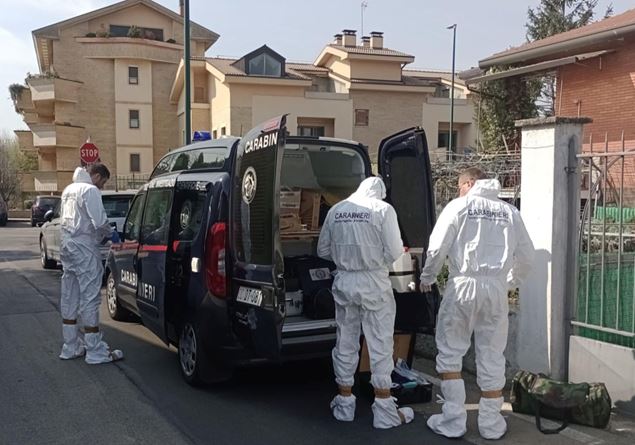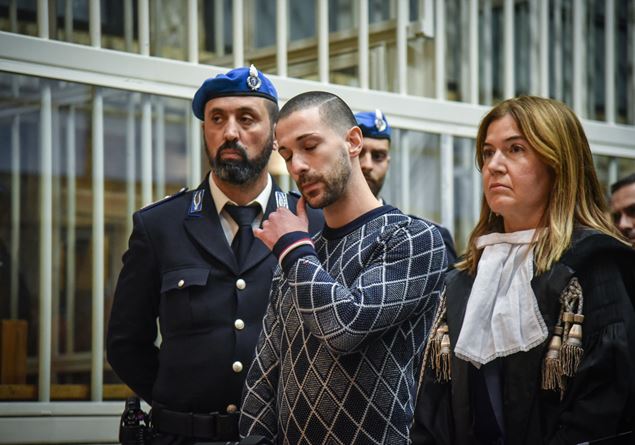
A 17-year-old boy kills one after the other during the night, first his 12-year-old brother who was sleeping in his room, then his mother and father rushed to the scene after being awakened by the noise of the fight. With a kitchen knife he slashed with such force that even a tall, robust man like his father had no chance. And immediately afterwards that same boy, with a last shred of ferocious lucidity, or perhaps desperation, also tried to exonerate himself, calling the police and saying that he had killed his father after the man had stabbed his wife and son to death. Whenafter a few hours of interrogation, tearfully confessed that he was the one who committed the massacre, He simply said that he felt an emptiness inside, that he felt like a stranger in that family, and that by killing them all he had deluded himself into thinking that the suffering would stop.
A normal family, a normal boy, no apparent problems, no manifest discomfort. A news that more than any other has chilled us, it has made us instinctively think that it could happen to anyone, and yes, even to us. And even the people on social media, usually so quick to launch invectives, issue verdicts, accusations, propose solutions, remained petrified. While waiting for other details to emerge on the matter, we talked about it with the educational psychologist Barbara Tamborini who has been dealing with adolescent issues and parenting education for years. “Even my first thought when faced with this terrible event was to look for an explanation. At the moment there are none evident and I understand that this can cause disorientation in families. Because, on the one hand, it can fuel the doubt that if I scold my son, if I set limits for him, if I generate frustrations in him, I could risk unleashing resentment in him that takes extreme directions. On the other hand, I can instead think that even if I do everything possible, if I am loving, non-judgmental, a tragedy like this can still happen. So I feel like saying two things: on the one hand, uAn event like this must not call into question the foundations of good educational practice made of listening but also of limits, of dialogue but also of containment.. And that fear is never a useful feeling in a relationship. There is an element of unpredictability in every aspect of life, and when we become parents, a margin of risk is unavoidable. Furthermore, children are people other than us, and even if we have been loving with them, they might want to separate from us, distance themselves, even without physically killing us.”
What differentiates this family massacre by a boy from other apparently similar ones (think of Pietro Maso, Erika and Omar to name just two of the most well-known) is the total gratuitousness. In that little house in Paderno Dugnano on the outskirts of Milan there were no – according to what witnesses said – conflicts, arguments, spite, drug use, economic greed, nothing that could have lit the fuse. How could it have been avoided if neither the family nor other educational agencies or relationships (the boy had friends, a girlfriend, played volleyball, attended a high school, lived near grandparents and uncles) had noticed any malaise, any crisis? If only the night before there had been a family party for the birthday of dad Fabio, 51 years old, and the future murderer had attended with all the others, simply, as he often did, just a little apart and silent? «What a parent should do before anything else», continues Barbara Tamborini, «is maintaining that deep contact with your children, an emotional feeling that begins from the first day of life and that remains unchanged even if you live in a conflictual relationship. It is the thread that allows you to find each other, parent and child, even in anger, thanks to a look, a gesture. We cannot know if this contact was there, or if it was lost at a certain point, or if the parents, faced with the fact that apparently everything was going well, pretended not to see it, or to postpone the moment to deal with it. But we should also understand what that boy was nourished by, in the sense of what thoughts, contents…».
Episodes of violence involving young people are occurring more and more frequently. Although this is particularly terrible, we wonder if there could also be some explanation for this general increase in anger and aggression in adolescence. “Instinct and impulses, acting without thinking is evolutionarily healthy, it is part of the normal process of an adolescent” concludes Tamborini; “what has changed is the environment, which adds fuel to the fire of this uncontainable energy with massive and often precocious solicitations. Instinct thus risks overflowing and causing damage if it is not contained, helped to metabolise by adult figures with a thousand tools that can range from a caress to simply being an example.. And unfortunately, if on the one hand this fuel is always more, the adult figures are always weaker, while we should do everything to recover ground on the side of trust, authority, being a point of reference and mediators. Faced with news like this, Instead of turning it into a morbid horror show that is sure to fill every type of media, we should channel the discomfort it causes us into the study.in asking questions and seeking answers.”







